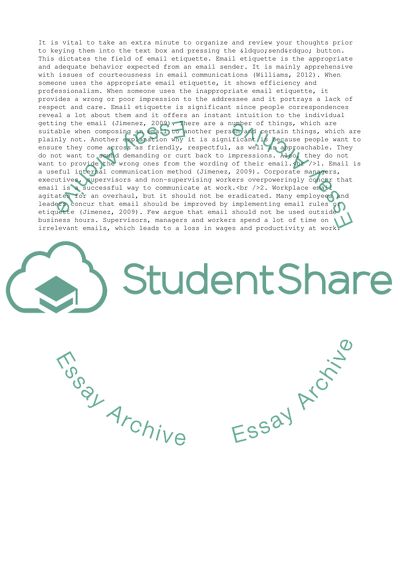Cite this document
(E-mail and Ethics From Employer to Employee Point of View Research Paper, n.d.)
E-mail and Ethics From Employer to Employee Point of View Research Paper. Retrieved from https://studentshare.org/management/1804895-e-mail-and-ethics-from-employer-to-employee-point-of-view
E-mail and Ethics From Employer to Employee Point of View Research Paper. Retrieved from https://studentshare.org/management/1804895-e-mail-and-ethics-from-employer-to-employee-point-of-view
(E-Mail and Ethics From Employer to Employee Point of View Research Paper)
E-Mail and Ethics From Employer to Employee Point of View Research Paper. https://studentshare.org/management/1804895-e-mail-and-ethics-from-employer-to-employee-point-of-view.
E-Mail and Ethics From Employer to Employee Point of View Research Paper. https://studentshare.org/management/1804895-e-mail-and-ethics-from-employer-to-employee-point-of-view.
“E-Mail and Ethics From Employer to Employee Point of View Research Paper”, n.d. https://studentshare.org/management/1804895-e-mail-and-ethics-from-employer-to-employee-point-of-view.


